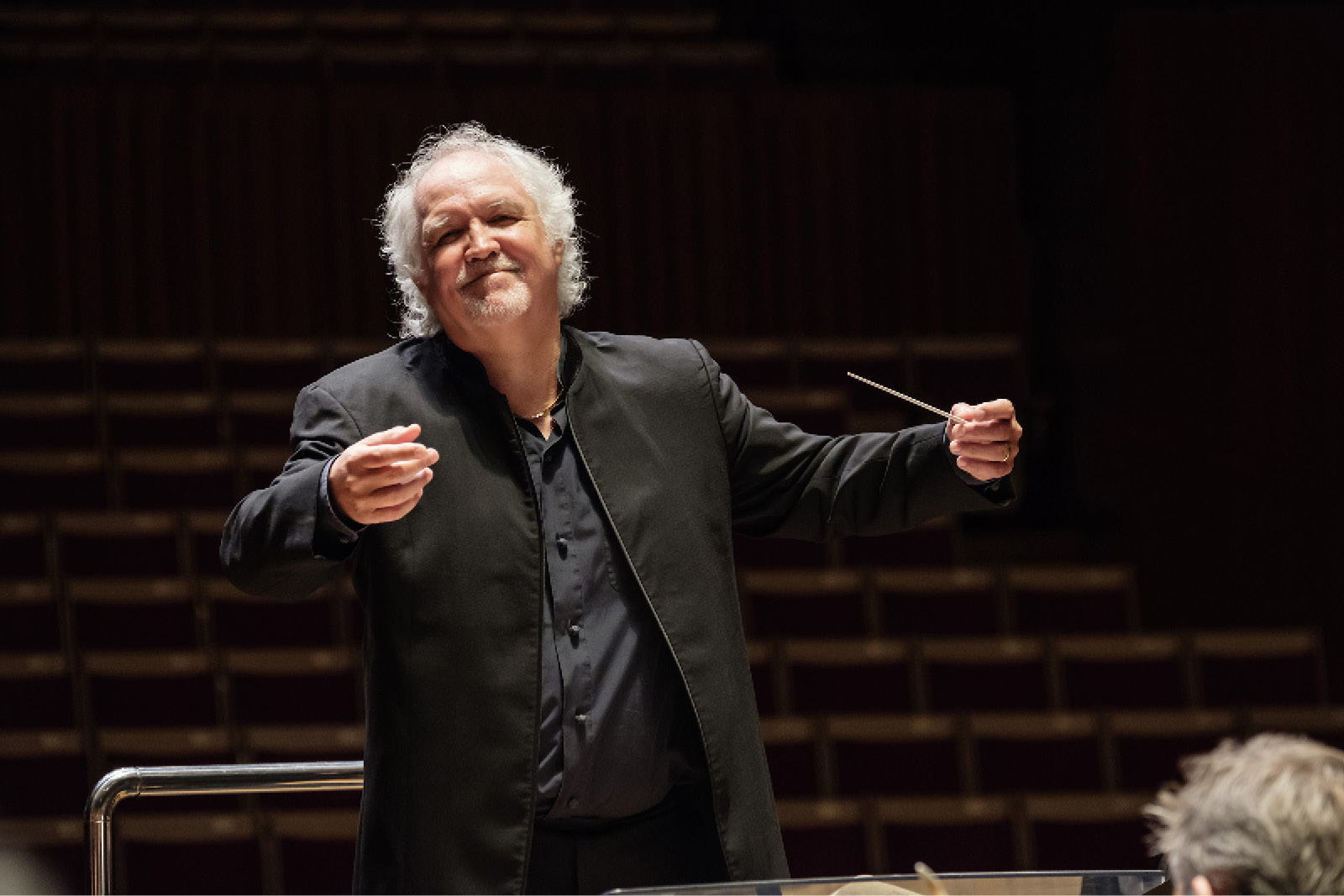“I’m drawn to composers who themselves were spiritual,” the Sydney Symphony Orchestra’s Principal Guest Conductor Donald Runnicles told Limelight’s Clive Paget in a recent interview. As such, his return to the SSO saw the Scottish conductor, whose early musical experiences were in an Anglican church choir, pair music by two composers who share both staunch Catholic faith and long careers as church organists – Olivier Messiaen and Anton Bruckner.
 Donald Runnicles. Photo © Robert Catto
Donald Runnicles. Photo © Robert Catto
Messiaen wrote Les Offrandes oubliées in his early 20s, and while it was his first published orchestral work, already we can hear in his music a sense of the timelessness that he would explore to such devastating effect in his Quatuor pour la fin du temps and something of the heaving ecstasy that would erupt so spectacularly in the Turangalîla-Symphonie. It is also an unequivocal expression of his faith, conveying in its three clearly defined sections: The Cross, The Sin, and The Eucharist.
Runnicles and the SSO conjured a profound stillness in the opening, even as the strings shifted over the uneasy haze of winds, while the biting percussion and writhing violins of The Sin was both jarring and sensual, before stillness returned in the serene final section, culminating in a muted, otherworldly final chord.
Bruckner’s Seventh Symphony, premiered by Arthur Nikisch and the Gewandhaus Orchestra in Leipzig in 1884, was the composer’s first real breakout hit – only, unlike the youthful Messiaen, it premiered when Bruckner was 60. Performed together without interval, the two works were joined by another thread – the ethereal strings of the Messiaen’s final bars became the opening shimmer of the Bruckner, before the unfurling of the first, ascending theme.
Bruckner may have come under fire from the pro-Brahms camp in Vienna for his symphonies’ harmonic and compositional structure, or apparent lack thereof (“His imagination is so incurably sick and warped that anything like regularity in chord progressions and period structure simply do not exist for him,” Gustav Dömpke wrote in 1886), but his symphonies were methodically, even obsessively, designed, and here Runnicles brought incredible lucidity to the composer’s large-scale architecture. The second iteration of the opening theme – rendered so simply in the first instance – bloomed beautifully with the addition of the winds, Runnicles navigating the opening movement’s thematic groups with clarity and impeccable logic, which paid emotional dividends in the swelling climaxes and pealing violins of the movement’s final bars. The Adagio – which became an elegy for Bruckner’s hero Wagner – was both hymn-like and flowing, the four Wagner Tubas (invented by the composer for Der Ring des Nibelungen) adding further colour to Bruckner’s rich textures. The Scherzo was all taut energy and stirring momentum – and lush in the Trio section – while Runnicles shaped the long phrases of the Finale exquisitely, the brass sound infused with dramatic fire.
This was a stunning concert, touching on the divine, and while there were very occasional frayed entries (such as the very exposed opening of the Messiaen) the SSO was in formidable form. The brass outdid themselves – the Wagner Tuba moments in the Bruckner’s Adagio and Finale were particular highlights – but there were many wonderful wind moments as well, including fine solos from Joshua Batty on flute. Following Runnicles’ monumental Mahler Ten last year, this performance affirms him as a brilliant addition to the SSO’s stable of conductors – his Beethoven Missa Solemnis and Mahler Four in the 2020 season promise to be a treat.
The Sydney Symphony Orchestra’s Donald Runnicles conducts Bruckner Symphony No.7 is at the Sydney Opera House until October 19












Comments
Log in to join the conversation.